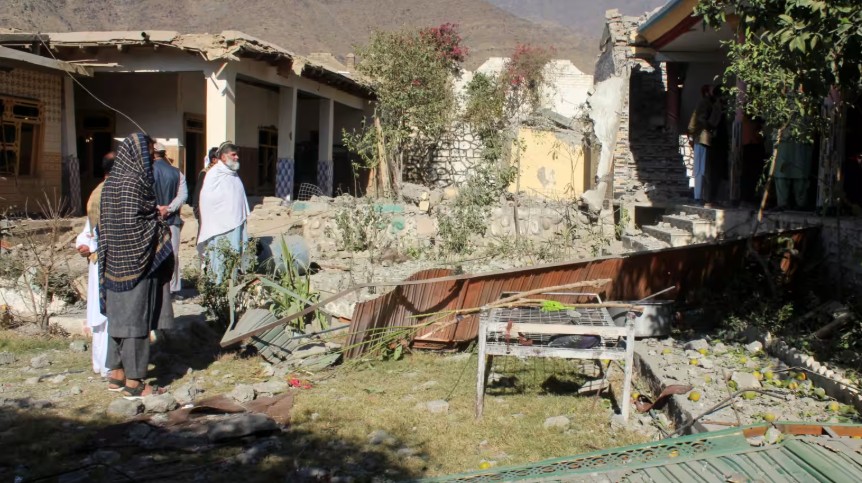Prof. Syed Munir Khasru
Nikkei Asia
May 09, 2025
https://asia.nikkei.com/Opinion/Albanese-s-diplomatic-skills-will-be-fully-tested-in-his-second-term
After a landslide election win at the weekend, reinstalled Australian Prime Minister Anthony Albanese and his Labor Party now have to ride out the whirlwind that U.S. President Donald Trump has whipped up with his tariff threats on countries across the world.
Albanese has an opportunity to make a positive impact with smart and timely diplomatic and security strategies aimed at strengthening ties in the region.
As a founding member of the Asia-Pacific Economic Cooperation (APEC) group, Australia continues to support the Putrajaya Vision 2040 (a long-term strategic framework) and is prioritizing progress toward a Free Trade Area of the Asia-Pacific (a proposed regional trade deal). Australia also contributes through the APEC Business Advisory Council, helping shape regional economic priorities and business engagement.
To grow trade with other APEC countries, the new government should continue to advocate for paperless trade and digitizing customs procedures to enhance trade efficiency and reduce barriers, aligning with APEC’s goals of facilitating smoother cross-border commerce.
Australia’s trade with ASEAN has now surpassed its trade with the U.S., the European Union and Japan, reaching nearly $193 billion in the 2023-24 fiscal year. The ASEAN-Australia Comprehensive Strategic Partnership emphasizes key areas like maritime security, digital transformation and climate action. Alongside this, the Southeast Asia Economic Strategy to 2040 is backed by more than 500 million Australian dollars (about $323 million) in investments focused on infrastructure, education and green energy.
Moving forward, Albanese must build on this foundation by strengthening people-to-people ties through initiatives in education, mobility and cultural exchange, while also ensuring continued diplomatic dialogue and respecting ASEAN’s central role in regional affairs.
While its relationship with the U.S. remains sacrosanct, China is still Australia’s most important economic partner and a major regional power. After years of tension following former Prime Minister Scott Morrison’s call for investigations into Chinese involvement in the outbreak of the COVID-19 virus in 2020, Albanese managed to stabilize ties, leading to China lifting all trade restrictions by late 2024 and opening access for Australian food exports, including apples and red meat.
As of 2025, two-way trade exceeds AU$325 billion, with China taking over a quarter of Australia’s exports, mainly iron ore, liquefied natural gas, beef and wine. However, security tensions and concerns about foreign interference remain active as Australia continues engagement with regional alliances such as AUKUS and the Quad while seeking to avoid escalation with China.
Australia should deepen market access by diversifying exports, especially in critical minerals and clean energy. Other forms of strategic engagement can be boosted in areas such as education and cultural exchange, as Chinese students account for 22% of Australia’s foreign students. Though the “soft cap” on international students planned by Labor may impact this number, it should be open to flexibility with China.
Albanese has also helped bring Australia closer to Japan, with the renewal of the Joint Declaration on Security Cooperation that allows Japanese Self-Defense Forces to train in northern Australia. He also expanded military collaboration through the Reciprocal Access Agreement. Engagement with South Korea gained momentum through frequent meetings with former President Yoon Suk Yeol and the establishment of a “2-plus-2” foreign and defense ministers dialogue. In May 2024, Australia welcomed South Korea’s interest in joining AUKUS Pillar II.
U.S. tariffs that result in economic slowdowns affecting both Japan and South Korea could dampen Australia’s trade prospects — although they can be safeguarded by expanded economic and trade pacts to include high-growth sectors such as digital services and green technologies. Albanese’s second term also offers an opportunity to embed long-term partnerships amid the global supply chain disruptions and changing geopolitical dynamics.
Labor has also continued to work closely with India in the Quad alongside the U.S. and Japan. In his first term, Albanese made significant progress by finalizing with India the initial Economic Cooperation and Trade Agreement in 2022, which eliminated tariffs on most traded goods. During a 2023 summit, both countries launched negotiations for Comprehensive Economic Cooperation Agreement (CECA) for boosting trade across sectors such as agriculture, clean energy, digital services and health.
In his second term, Albanese’s focus should be on finalizing the CECA, which has been delayed due to Australia’s federal elections and disagreements over sectors such as agriculture and services. Another issue that continues to hinder trade expansion are nontariff barriers, such as differing regulatory standards and infrastructure gaps, particularly in agriculture and pharmaceuticals.
As geopolitical landscapes are changing and Trump 2.0’s policies continue to disrupt markets and challenge existing diplomatic ties, Australia must remove its rose-colored lens and reassess the extent to which it may rely on its relationship with the U.S., particularly in trade and economic relations. Trump’s policies have not been beneficial to Australia in the past, such as pulling the U.S. out of the Trans-Pacific Partnership.
The challenge is to retain progress and expand Australia’s influence in the region while balancing relations with major powers, particularly the U.S. and China. Albanese’s diplomatic skills will be fully tested in his second term.



0 Comments